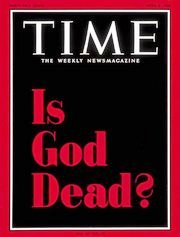Why Not Believe? Reasons Why Atheists Don't Believe in GodsFrom Austin Cline,Your Guide to Agnosticism / Atheism.
Multiple Gods and Religious Traditions:
It is difficult to credit any one religion as being True or any onegod as being True when there have been so many throughout humanhistory. None appears to have any greater claim to being more credibleor reliable than any other. Why Christianity and not Judaism? WhyIslam and not Hinduism? Why monotheism and not polytheism? Everyposition has had its defenders, all as ardent as those in othertraditions. They can't all be right, but they can all be wrong.
Contradictory Characteristics in Gods:Theists often claim that their gods are perfect beings; they describegods, however, in contradictory and incoherent ways. Numerouscharacteristics are attributed to their gods, some of which areimpossible and some combinations of which are impossible. Asdescribed, it's unlikely or impossible for these gods to exist. Thisdoesn't mean that no god could possibly exist, just that the onestheists claim to believe in don't.
Religion is Self-Contradictory:No religion is perfectly consistent when it comes to doctrines, ideas,and history. Every ideology, philosophy, and cultural tradition hasinconsistencies and contradictions, so this shouldn't be surprising —but other ideologies and traditions aren't alleged to be divinelycreated or divinely sanctioned systems for following the wishes of agod. The state of religion in the world today is more consistent withthe premise that they are man-made institutions.
Gods Are Too Similar to Believers:A few cultures, like ancient Greece, have postulated gods which appearto be as natural as human beings, but in general gods aresupernatural. This means that they are fundamentally different fromhuman beings or anything on earth. Despite this, however, theistsconsistently describe their gods in ways that make the supernaturalappear almost mundane. Gods share so many characteristics with humansthat it has been argued that gods were made in the image of man.
Gods Just Don't Matter:Theism means believing in the existence of at least one god, not thatone necessarily cares much about any gods. In practice, though,theists typically place a great deal of importance on their god andinsist that it and what it wants are the most important things aperson can be concerned with. Depending upon the nature of a god,however, this isn't necessarily true. It's not obvious that theexistence or desires of gods should matter to us.
Gods and Believers Behave Immorally:In most religions, gods are supposed to be the source of all morality.For most believers, their religion represents an institution forpromoting perfect morality. In reality, though, religions are responsible for widespread immorality and gods have characteristics or histories which make them worse than the most vile human serial killer. No one would tolerate such behavior on the part of a person,but when with a god it all becomes laudable — even an example to follow.
Evil in the World:Closely associated with taking action that should be consideredimmoral is the fact that there is so much evil in the world today. Ifthere are any gods, why don't they act to eliminate it? The absence ofsubstantive action against evil would be consistent with the existenceof evil or at least indifferent gods, which is not impossible, but fewpeople believe in such gods. Most claim that their gods are loving andpowerful; the suffering on Earth makes their existence implausible.
Faith is Unreliable:A common characteristic of both theism and religion is their relianceon faith: belief in the existence of god and in the truth of religiousdoctrines is neither founded upon nor defended by logic, reason,evidence, or science. Instead, people are supposed to have faith — aposition they wouldn't consciously adopt with just about any otherissue. Faith, though, is an unreliable guide to reality or means foracquiring knowledge.
Life is Material, not Supernatural:Most religions say that life is much more than the flesh and matter wesee around us. In addition, there is supposed to be some sort ofspiritual or supernatural realm behind it all and that our "trueselves" is spiritual, not material. All evidence, though, points tolife being a purely natural phenomenon. All evidence indicates thatwho we really are — our selves — is material and dependent upon theworkings of the brain. If this is so, religious and theistic doctrinesare wrong.
There is No Good Reason to Bother Believing:Perhaps the most basic reason for not believing in any gods is theabsence of good reasons for doing so. The above are decent reasons fornot believing and for questioning — and eventually leaving — whatevertheistic and religious beliefs a person might have had in the past.
Once a person gets beyond the bias in favor of belief, though, theymay realize something critical: the burden of support lies with thoseclaiming that belief is rational and/or necessary. Believers fail tomeet this burden, though, and thus fail to provide good reasons toaccept their claims. As a consequence, those who don't already believeand/or who are not biased in favor of belief aren't given a reason tostart.
Since the burden of support lies first and foremost with those makingthe positive the claim — the theistic, religious believers —non-believers don't need reasons not to believe. They may help, butthey aren't particularly necessary. Instead, what is required arereasons to believe.
The question "Why don't you believe?" is a request for justificationfrom the nonbeliever; the response "I haven't seen any good reason tobother believing" returns the need for justification back where itbelongs: with the believer. Too often, believers fail to realize thattheir position is the one needing defense and this may help themunderstand that.
Theists should think of a god they don't believe in and ask why theydon't believe in it. Some may answer that their religion teaches themnot to. Others, however, will respond in a way similar to the above —they have no reason to bother and/or they have good reasons to thinkthat that god does not or cannot exist.
Well, atheists don't believe for the same sorts of reasons — they justdon't make an exception for the theist's god. Theists and atheistsaren't always so far apart; more important is the methodology used toarrive at those conclusions. Why does the theist disbelieve in allother gods except for the one or few in their belief system?



